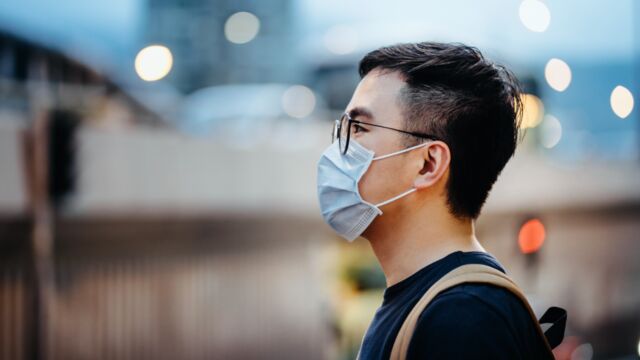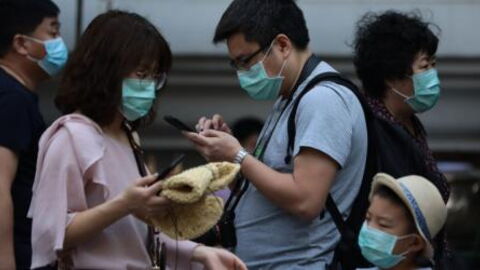Wondering how to protect yourself effectively from the Covid-19 coronavirus? This is the question that people the world over are currently asking themselves. By wearing a mask? By using copious amounts of hand sanitiser? Never leaving your home again? Here are some solutions that will help to ensure that you do not catch the virus, and especially how not to give in to panic.
Discover our latest podcast
18,941 deaths and over 425,000 people infected
While the WHO now describes the situation as a pandemic, the coronavirus continues to spread: the number of cases has exceeded 425,000 worldwide, with more than 18,000 deaths. In the UK, the toll is now 422 deaths with just over 8,000 cases, which are relatively small figures compared to some of the other countries hit by the pandemic. However, it still places the UK in the top 10 of worst-affected countries and the situation seems to be getting worse every day. Therefore, we should all be looking to protect ourselves accordingly. However, as the temptation to panic grows, it is prudent to remind people of the useful things that can be done, but above all to provide information on practices that are totally useless or ineffective so that everyone can be properly informed.
Wearing masks. How effective are they?
There are two types of masks. The first and most common is called a 'surgical mask.' It has only one use when it comes to a virus: not spreading it. In other words, if you have the virus, wearing one is useful, but if you don't have it, it's totally useless and it won't protect you. All the more so because it needs to be changed very regularly since it is ineffective if it is soiled or wet. In other words, you can only use it once, and you must throw it away afterwards.
The other type of mask, called FFP2, is a mask that is used in case of an epidemic. But beware, only people who are in contact with infected people should use one, so most of all, medical staff. If you are not in direct contact with a sick person, wearing one is useless, especially since stocks are limited; you should, therefore, reserve them for those who really need them. In countries like Canadaand the U.S., hospitals and healthcare centres are even asking the public to donate their unused masks. Additionally, they only have a lifespan of 3 to 8 hours, so reusing the masks are completely redundant.
Simple everyday precautions
But then how do you protect yourself effectively? To begin with, it is important to know how the virus is transmitted. Covid-19 is mainly transmitted by touch, so it is important to pay attention to where you place your hands, and therefore also when touching others. In other words, avoid handshakes and hugs, but it is also important to avoid simple things such as using your friends' phones and touching devices such as ATM's, Interac or vending machines. Pretty much anything that could have come in contact with people you don't know.
Finally, don't forget the simple things that you should always be doing, pandemic or not: washing your hands as often as possible, with soap (no need to spend a fortune on hand sanitiser), and above all, sneezing or coughing into your elbow. That way, you will avoid contaminating others as much as possible, and contaminating your own hands, which are inevitably sources of contact.
Check out the video above for some more useful tips on how you can help protect yourself as well as others!















